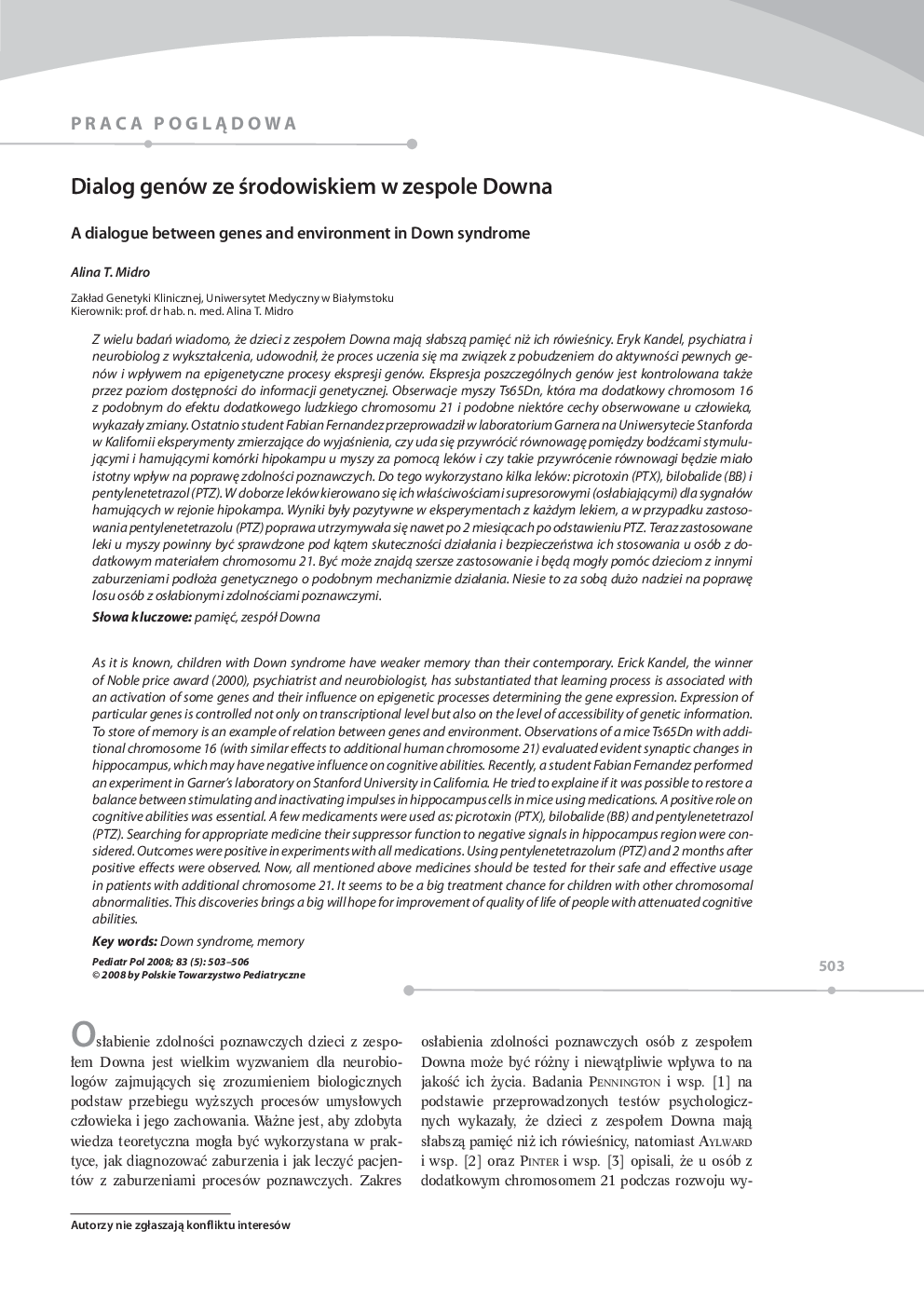| Article ID | Journal | Published Year | Pages | File Type |
|---|---|---|---|---|
| 2680275 | Pediatria Polska | 2008 | 4 Pages |
Abstract
As it is known, children with Down syndrome have weaker memory than their contemporary. Erick Kandel, the winner of Noble price award (2000), psychiatrist and neurobiologist, has substantiated that learning process is associated with an activation of some genes and their influence on epigenetic processes determining the gene expression. Expression of particular genes is controlled not only on transcriptional level but also on the level of accessibility of genetic information. To store of memory is an example of relation between genes and environment. Observations of a mice Ts65Dn with additional chromosome 16 (with similar effects to additional human chromosome 21) evaluated evident synaptic changes in hippocampus, which may have negative influence on cognitive abilities. Recently, a student Fabian Fernandez performed an experiment in Garner's laboratory on Stanford University in California. He tried to explain if it was possible to restore a balance between stimulating and inactivating impulses in hippocampus cells in mice using medications. A positive role on cognitive abilities was essential. A few medicaments were used as: picrotoxin (PTX), bilobalide (BB) and pentylenetetrazol (PTZ). Searching for appropriate medicine their suppressor function to negative signals in hippocampus region were considered. Outcomes were positive in experiments with all medications. Using pentylenetetrazolum (PTZ) and 2 months after positive effects were observed. Now, all mentioned above medicines should be tested for their safe and effective usage in patients with additional chromosome 21. It seems to be a big treatment chance for children with other chromosomal abnormalities. This discoveries brings a big will hope for improvement of quality of life of people with attenuated cognitive abilities.
Keywords
Related Topics
Health Sciences
Medicine and Dentistry
Dermatology
Authors
Alina T. Midro,
